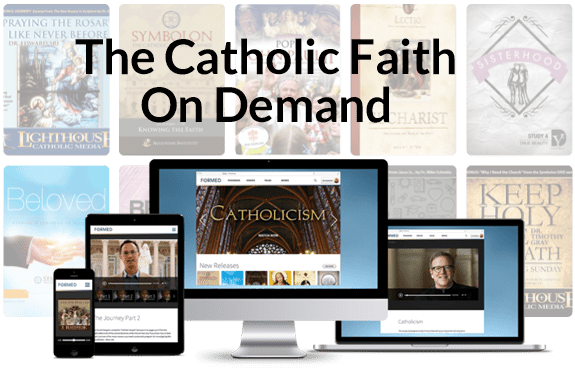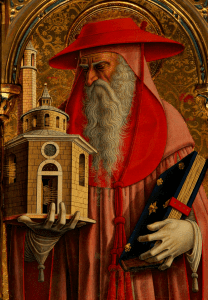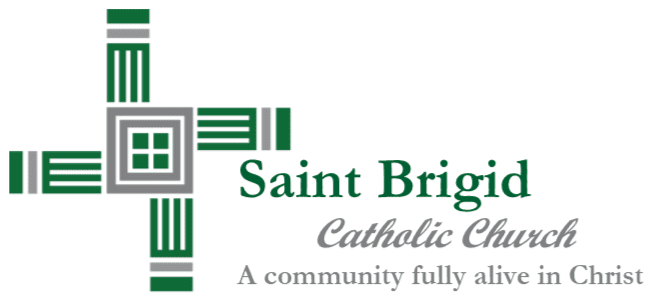Adult Faith Formation Opportunities
Women’s “Walking with a Purpose” Bible Study-meets Tuesday mornings, mid-September through early March. Contact Cheryl Collins (kevincherylc@aol.com) or Cathy Leikhim (leikhimck@aol.com) for more information or to register. Space is limited.
Whole Parish Retreats – There will be two retreats this formation year, November 4, 2024 and March 16, 2024. More details to come soon!
Marriage Encounter – Saint Brigid is happy to host a Marriage Encounter in January 2024
Couple’s Night Out-held quarterly on Sunday evenings. Includes dinner and a presentation from a guest speaker. Contact Krystal Gipson (pkgipson@hotmail.com) for more information.

FORMED.ORG
Enjoy this free gift of Formed.org in your family! 
- Catholic Movies
- Documentaries
- Apologetics
- Study Programs
- Children’s Movies
- Engaging Talks on various aspects of our Faith
- Free e-Books available for download
- Audiobooks
- Liturgical Season based study and prayer resources
- So much more!
It’s like Netflix, iTunes, and The Great Courses, but Catholic!
To register use our Parish code: 10f819
Scripture Studies

The Canon of Scripture
“It was by the apostolic Tradition that the Church discerned which writings are to be included in the list of the sacred books. This complete list is called the canon of Scripture. It includes 46 books for the Old Testament (45 if we count Jeremiah and Lamentations as one) and 27 for the New.
The Old Testament: Genesis, Exodus, Leviticus, Numbers, Deuteronomy, Joshua, Judges, Ruth, 1 and 2 Samuel, 1 and 2 Kings, 1 and 2 Chronicles, Ezra and Nehemiah, Tobit, Judith, Esther, 1 and 2 Maccabees, Job, Psalms, Proverbs, Ecclesiastes, the Song of Songs, the Wisdom of Solomon, Sirach (Ecclesiasticus), Isaiah, Jeremiah, Lamentations, Baruch, Ezekiel, Daniel, Hosea, Joel, Amos, Obadiah, Jonah, Micah, Nahum, Habakkuk, Zephaniah, Haggai, Zachariah and Malachi.
The New Testament: the Gospels according to Matthew, Mark, Luke and John, the Acts of the Apostles, the Letters of St. Paul to the Romans, 1 and 2 Corinthians, Galatians, Ephesians, Philippians, Colossians, 1 and 2 Thessalonians, 1 and 2 Timothy, Titus, Philemon, the Letter to the Hebrews, the Letters of James, 1 and 2 Peter, 1, 2 and 3 John, and Jude, and Revelation (the Apocalypse). (Catechism of the Catholic Church, 120).
The Development of the Old Testament Canon in the Early Catholic Church
“In the first three centuries, the exact boundaries of the canon did not constitute a pressing theological issue. Of much greater concern were questions like the manner of inclusion of Gentiles into the Church (Acts 15), the relationship of the Law to salvation in Jesus Christ (Romans; Galatians), and maintaining the visible unity of the Church (see 1 Clement and the Letters of Ignatius of Antioch).
The second and third centuries witnessed frequent persecutions of the Church that threatened her very survival. This probably explains why it is not until after the legalization of Christianity by Constantine in the early fourth century that we begin to have extant lists of the canon from various Church fathers and Councils. By the end of the fourth century, the Churches in communion with Rome settled on the canon recognized by the Catholic Church today, as can be seen from the Councils of Rome (382), Hippo (383), Carthage (397; 419), and by St. Augustine.” (Source: Saint Paul Center for Biblical Theology).









